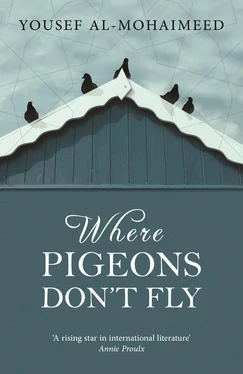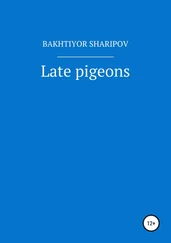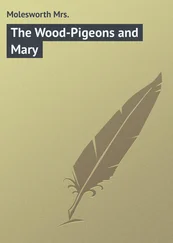‘No,’ replied Saeed, more earnest than ever. ‘The real disaster is that breaking these rules might lead to someone losing her job. A doctor’s heels clicking over a hospital’s marble corridor could put her on the unemployed list. What a country.’
A moment’s silence passed and then Fahd shouted, ‘I’ve got an idea!’
‘Let’s hear it, genius.’
‘Why don’t they lay carpets in the hospital corridors, so the doctors’ and nurses’ shoes don’t make a sound?’
Saeed groaned. ‘I swear to God you’re the most brilliant man I know, more brilliant than all the holy warriors in the hospitals.’
He took a sip.
‘Why don’t you register that idea with the patent office?’
— 8 —
Darling: don’t miss page 5 of Riyadh.
TARFAH RECEIVED FAHD’S MESSAGE and her laughter washed the night. His message was the fourth she had received since the decision to impose the dress code. The rest of the messages had been from her friends at the Academy for Health Sciences, mocking the idea of the shoes, jeans and accessories. Tarfah thought of the students who wore jeans in class beneath their abayas and then a second abaya on top.
Sameera, or Sameer as the other girls called her, would dash from her family home in Shubra, a full-length abaya draped over her head, and as the Palestinian bus driver set off down King Fahd Road, she would take it off and stow it in her capacious bag to reveal another abaya covering her shoulders, the garish silver embroidery on its sleeves gleaming against the black cloth. Another embroidered panel spread down her back and over her buttocks. She would put on a pair of large pink sunglasses and, from her seat in the back of the small bus, would turn her gaze to the cars moving past them on the road.
From her first day at the Academy this young woman in her twenties had strutted the corridors dressed in dark blue jeans and a white shirt with a drawing of a huge eye over her small breasts. Her stride was broad and manly and she never stopped chasing after the soft, brown-skinned girls.
When Tarfah saw Sameera for the first time she felt rooted to the spot and started to stare at her as they sat facing each other across the corridor. Sameera took the cushion from her seat and hugged it, its corner between her open thighs as she twirled a pen around her mouth in a quite blatant fashion. Tarfah couldn’t tell if she was looking at her or the window behind her, because the sunglasses completely hid her eyes.
She wasn’t the only one at the Academy: there were five girls, ‘boyettes’ as they were known, who wore jeans, baggy shirts, trainers and sunglasses and roamed the courtyard hitting on girls. One would put her hands in her jean pockets and walk along with a male self-confidence, arm-in-arm with a soft white girl on whose shoulder she would sometimes drop her head. She was away in another world, insensible to the glances and sly comments of the others. They would go to the bathroom together, the open-topped partitions unable to muffle their fevered panting.
It was terrifying to watch them argue with their girlfriends, swapping filthy phrases and accusations back and forth because the girl had seen her ‘boyette’ come on to some young woman who had responded to her advances. For Tarfah and her friend Nada there was nothing funny about it; it was strange and painful.
When Sameera tried it with Tarfah the time they found themselves alone together beneath the stairs, Tarfah could only pretend to ignore Sameera’s flirtatious comments about her eyes. She pleaded with her to give it a try for a few minutes: just a hug and a clinch, and if she enjoyed it then she would kiss her a few minutes more. But Tarfah’s response as she charged up the stairs in fright was that she would be unable to oblige: ‘I hate girls!’ she shouted.
Sameera left her to vanish on to the second floor, but she didn’t give up hope.
Tarfah had told Fahd that she would never work as a nurse, anyway, since her brothers had strongly opposed the idea and decided she would either become a laboratory assistant or a pharmacist. Then she laughed out loud as she told the story of Nada’s cousin who worked as a pharmacist at a government hospital.
It was midday when a Bedouin with a thick upswept moustache stood up carrying a little tousle-haired girl, red-cheeked with fever. The cousin fetched the medicine and placed it over the prescription lying on the table — Fevadol for the temperature, an antibiotic called Augmentin and a strip of suppositories just in case — and started to write out instructions for their use. She took the bottle of antibiotics and made a mark with the pen above the level of the white powder inside, saying that he must add clean water up to the line then shake the bottle. Her white hand squeezed the bottle tight and shook it up and down in front of him as she said, ‘Shake it hard.’
The Bedouin’s gaze devoured her.
He took the bag of medicines and walked a few paces then stopped and put the girl on the floor, removing the antibiotics from the bag and returning to the counter. Watching him as he walked towards her she noticed that he was aroused. Embarrassed, she averted her eyes. ‘Do I put the water in this bottle, or another one?’ he asked. She answered with a shake of the head and fled to the shelves at the back of the pharmacy.
Tarfah laughed noisily. ‘Just imagine! Can you believe this society? These people? That’s real frustration…’ she added sadly. ‘Is it this hard for people to have sex?’
‘What do you mean? You’re not saying that these directives are right?’ Fahd asked.
Her voice a little calmer, Tarfah replied, ‘No, sweetheart, you know my position, but I can’t imagine what it will be like to work there.’
He told her that if the legislator who drew up the directives had thought a little differently, he would have issued severe laws that would commit anyone convicted of harassing women to years in prison, enough to make the Bedouin hesitate a thousand times over before exposing himself to her. But the punishment was always borne by the poor woman because she was the one who provoked his pole.
Fahd did not entirely trust his lover. Despite the fact she worshipped his very eyes, as she was always telling him in her texts, he would have his doubts whenever she called him and he heard the racket and wicked laughter coming from her friends at the Academy.
‘Where’s Tarfah got to?’ a girl might ask.
‘Over there, breastfeeding,’ another would answer and they would burst out into wild laughter. Tarfah would laugh, too, and shout at them to shut up so she could hear him.
‘“Breastfeeding” means talking on the phone,’ she would explain.
Her friends would try to make him overhear their jokes or mocking comments, then attempting to persuade Tarfah to let them say hello to her sweetheart. Tarfah told him that they also tried to make her talk to their boyfriends but she absolutely refused to do so. He wasn’t convinced that she spoke to no one else apart from him, especially since her friends would encourage her to live ‘free’ as they called it, simply and happily. ‘The world isn’t up to your complications!’
One message in particular had left him wracked with doubt:
I send you a bullet of love, an artillery shell of desire, a bomb-belt of tenderness and a booby-trapped car of roses and jasmine .
What do you think of this?! she had added at the bottom, then told him it had been sent by a Palestinian driver to a friend of hers who took his bus from Suwaidi to Mugharrazat. Fahd asked her how the Palestinian could send her friend a message like that unless she was having an affair with him. She stammered and snapped, ‘Believe it or not I didn’t look at it like you!’
Читать дальше












